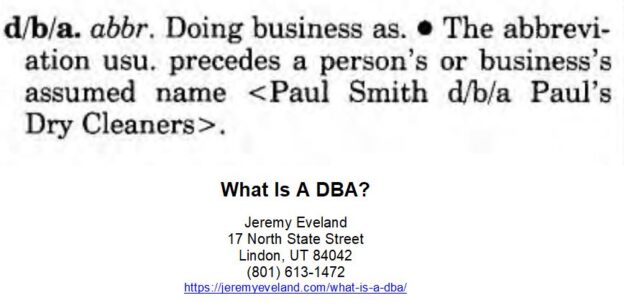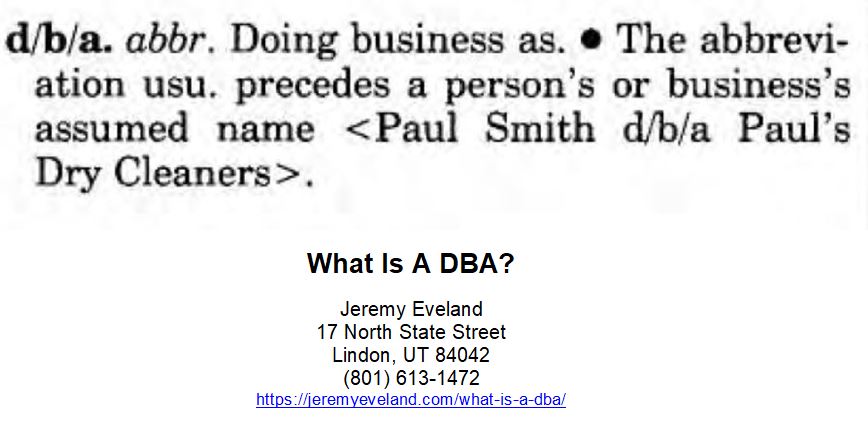Structuring a Flow Through Entity
Did you know that structuring a flow-through entity with limited liability can help protect your personal assets while providing tax advantages? By choosing the right entity type, such as a limited liability company (LLC) or a limited partnership, and meeting all legal requirements, you can ensure that your business profits and losses pass through to your individual tax returns. In this article, we will explore different types of flow-through entities, discuss the pros and cons, and provide key considerations for structuring one successfully. Let's get started!
Key Takeaways
- Consult with an experienced attorney to ensure proper structuring and compliance with state laws.
- Choose the appropriate legal structure, such as LLCs, partnerships, or S corporations, based on the unique advantages they offer.
- Understand the tax implications, including pass-through taxation at the federal level and the potential for additional state taxes.
- Protect personal assets by taking advantage of limited liability protection for owners, but be aware that personal taxes owed are not protected.
Different Types of Flow Through Entities
If you're looking to create a new business entity with limited liability, you should consider the different types of flow through entities available. When structuring a flow through entity, it's important to understand the various options and their implications for taxes and your business.
One type of flow through entity is a partnership. In a partnership, two or more individuals come together to form a business. The partners contribute capital and share in the profits and losses according to their ownership percentage. This type of entity provides flexibility in management and allows for pass-through taxation, meaning that the income is reported on the partners' individual tax returns.
Another option is a limited liability company (LLC). An LLC combines elements of both partnerships and corporations. It offers limited liability protection to its owners (known as members) while also allowing for pass-through taxation. LLCs are popular because they provide personal asset protection without the formalities required by corporations.
Sole proprietorships are another form of flow through entity where an individual operates their business under their own name or a trade name. While this structure does not provide limited liability protection, it is simple to set up and offers sole control over the business.
Each type of flow through entity has its own advantages and considerations when it comes to taxes and running your business efficiently. Understanding these differences can help you make informed decisions about which structure best suits your needs.
Now that we've explored the different types of flow through entities, let's delve into the pros and cons of utilizing this structure for your business without missing out on potential benefits or facing unnecessary risks."
Pros and Cons of Flow Through Entities
When considering the pros and cons of a flow through business structure, you'll want to weigh the benefits of limited liability against any potential tax implications. A flow through entity, also known as a passthrough entity, is a business structure that does not pay taxes at the entity level. Instead, the profits and losses "flow through" to the owners' personal tax returns.
One of the major advantages of a flow through entity is limited liability. This means that your personal assets are protected in case your business faces legal issues or debts. Unlike sole proprietorships or general partnerships where owners have unlimited liability, forming a flow through entity can provide you with peace of mind knowing that your personal assets won't be at risk.
Another benefit is the potential for tax savings. Flow through entities do not pay corporate income taxes, which can be advantageous if you expect your business to generate significant profits. Instead, those profits are distributed to the owners who report them on their individual tax returns and pay taxes at their individual rates.
However, it's important to consider any potential tax implications before choosing this structure. Depending on your specific circumstances and how much profit your business generates, you may end up paying higher taxes compared to other structures like C corporations.
Key Considerations in Structuring a Flow Through Entity
One important thing to consider when setting up a new business with limited liability is consulting with an experienced attorney. Structuring a flow-through entity requires careful consideration of various key factors to ensure you maximize the benefits while minimizing potential pitfalls. Flow-through entities, such as partnerships and S corporations, are popular due to their pass-through taxation feature, which allows profits and losses to flow directly to the owners' personal tax returns.
When structuring a flow-through entity, one of the first decisions is choosing the appropriate legal structure. Limited liability companies (LLCs) have become increasingly popular due to their flexibility in terms of management and ownership structure. However, partnerships and S corporations also offer unique advantages depending on your specific needs.
Another key consideration is ensuring compliance with state laws regarding the formation and operation of these entities. Each state has its own requirements for establishing flow-through entities, so it's crucial to consult with an attorney who has expertise in this area.
Additionally, understanding how your flow-through entity will be taxed is vital. While these entities enjoy pass-through taxation at the federal level, some states may impose additional taxes or require separate filings.
In conclusion, when structuring a flow-through entity, consulting with an experienced attorney is essential. They can guide you through the process of choosing the right legal structure, ensuring compliance with state laws, and understanding the implications of pass-through taxation. By seeking professional advice from a knowledgeable business attorney, you can set your new venture up for success while protecting yourself from potential legal and tax-related issues.
Understanding pass-through taxation plays a critical role in maximizing the benefits of your chosen structure without sacrificing efficiency or exposing yourself to unnecessary risks.
Understanding Pass-Through Taxation
Consulting with an experienced attorney is essential to understand how pass-through taxation impacts your new business entity. Pass-through taxation refers to the way income generated by a flow through entity is reported on the individual owner's tax return, rather than being taxed at the entity level. Here are four key points you need to know about pass-through taxation:
-
Flow Through Entity: A flow through entity, also known as a passthrough entity, includes structures such as partnerships, limited liability companies (LLCs), and S corporations. These entities do not pay taxes themselves; instead, the income "passes through" to the owners who report it on their personal tax returns.
-
Tax Purposes: The main advantage of pass-through taxation is that it avoids double taxation. By not taxing the income at both the corporate and individual levels, owners can potentially reduce their overall tax liability.
-
Income Allocation: In a flow through entity, profits and losses are typically allocated among owners based on their ownership interests or as outlined in the operating agreement or partnership agreement. Each owner reports their share of income or loss proportionately on their personal tax returns.
-
Personal Liability Protection: While flow through entities offer limited liability protection for owners' personal assets, it's important to note that this protection does not extend to any personal taxes owed by owners due to pass-through income.
Understanding how pass-through taxation works is crucial when structuring your new business entity. It allows you to make informed decisions about which type of structure best suits your business goals and minimizes your tax obligations while still providing necessary legal protections for your personal assets.
Now that you have a solid understanding of pass-through taxation, let's move ahead and explore how you can choose the right entity structure for your business without compromising any crucial elements of its operations or future growth potential.
Choosing the Right Entity Structure for Your Business
To choose the right entity structure for your business, it's important to consider factors such as liability protection and tax implications. There are several options available, including partnerships, corporations, and LLCs. Each has its own advantages and disadvantages, so it's crucial to understand how they align with your business goals.
Partnerships are a popular choice for small businesses because they offer flexibility and simplicity. In a partnership, two or more individuals share the profits and losses of the business. However, one drawback is that partners have unlimited personal liability for the debts and obligations of the partnership.
On the other hand, corporations provide limited liability protection to their owners, also known as shareholders. This means that shareholders' personal assets are protected from any legal actions or financial issues faced by the corporation. However, corporations can be complex to set up and maintain due to additional requirements such as regular meetings and record-keeping.
Limited Liability Companies (LLCs) combine elements of partnerships and corporations. They offer limited liability protection while providing the flexibility of a partnership in terms of management structure. LLCs also benefit from pass-through taxation which allows income and losses to flow through directly to individual members without being taxed at both the corporate level and individual level like traditional C-corporations.
Understanding these different types of entities will help you make an informed decision about which structure is best suited for your business needs. Now that we've covered choosing the right entity structure, let's dive into structuring a flow through entity for asset protection without compromising on limited liability – a key aspect when setting up your new business venture."
Structuring a Flow Through Entity for Asset Protection
If you're looking to protect your assets while maintaining limited liability, consider setting up a business entity that allows for pass-through taxation. One such option is to structure your business as a flow through entity. Flow through entities, such as partnerships, limited liability companies (LLCs), and S corporations, offer owners the benefit of pass-through taxation while also providing asset protection.
When it comes to asset protection, structuring your business as a flow through entity can be advantageous. Unlike sole proprietorships or general partnerships where owners have unlimited personal liability for the debts and obligations of the business, flow through entities provide a layer of protection. This means that if the business faces legal issues or incurs debts, creditors cannot come after the personal assets of the owners.
In addition to asset protection benefits, flow through entities also offer flexibility in terms of taxes. With flow through taxation, profits and losses from the business are "passed through" to the owners' individual tax returns. This means that the income is only taxed at the individual level and not at both the corporate and individual levels like with traditional corporations.
However, it's important to note that structuring your business as a flow through entity does come with compliance requirements. These include keeping accurate records of income and expenses, filing annual tax returns for both federal and state purposes (if applicable), and adhering to any specific regulations or guidelines set forth by each type of flow-through entity.
In order to ensure proper compliance with all necessary requirements for your chosen flow-through entity structure, it is highly recommended that you consult with an experienced business attorney who can guide you throughout the process.
Next section: Compliance Requirements for Flow Through Entities…
Compliance Requirements for Flow Through Entities
In the previous section, we discussed how to structure a flow through entity for asset protection. Now, let's dive into the compliance requirements that you need to be aware of when setting up such an entity.
When creating a flow through entity, whether it's a partnership or an LLC with multiple shareholders, there are rules and regulations that must be followed. First and foremost, it's crucial to understand that these entities offer limited liability protection. This means that the owners' personal assets are protected from any business liabilities.
However, in order to maintain this limited liability status and enjoy the tax benefits associated with flow through entities, certain compliance requirements must be met. For example, partnerships must file an annual information return on Form 1065 with the IRS. This form provides details about the partnership's income and expenses.
Similarly, if you choose to structure your flow through entity as an LLC, you'll need to adhere to specific rules depending on your state of formation. These rules usually involve filing articles of organization and drafting an operating agreement that outlines how the business will be managed.
By complying with these requirements and maintaining accurate records of financial transactions within your flow through entity, you can ensure that both your limited liability status and tax advantages remain intact.
Now that we've covered the compliance requirements for structuring a flow through entity let's move on to discussing common mistakes to avoid when establishing this type of business structure…
Common Mistakes to Avoid When Structuring a Flow Through Entity
One common mistake to avoid when setting up a flow through entity is neglecting to maintain accurate financial records. Accurate financial records are crucial for the smooth operation of any business, especially a flow through entity. Failing to keep track of your company's finances can lead to serious consequences, including legal issues and financial losses.
To help you navigate the process of structuring a flow through entity successfully, here are some common mistakes to avoid:
-
Failing to choose the right entity: Selecting the appropriate type of flow through entity is essential for ensuring that you receive all the benefits it offers. Each type has its own advantages and disadvantages, so it's important to consult with a knowledgeable business attorney who can guide you in making an informed decision.
-
Neglecting proper documentation: Properly documenting your flow through entity is crucial for maintaining its legal status and limited liability protection. This includes drafting and filing articles of organization or incorporation, creating an operating agreement or bylaws, and obtaining necessary licenses and permits.
-
Commingling personal and business funds: Mixing personal and business finances is a major mistake that can jeopardize your limited liability protection as well as create confusion during tax season. It's important to open separate bank accounts for your flow through entity, keep meticulous records of all transactions, and only use business funds for legitimate business expenses.
-
Ignoring ongoing compliance requirements: Once your flow through entity is set up, you must stay on top of ongoing compliance obligations such as filing annual reports, paying taxes on time, maintaining proper corporate formalities, and keeping accurate financial records.
Remember that structuring a flow through entity requires careful planning and attention to detail. To ensure accuracy and compliance with the law throughout this process, it's highly recommended to work with an experienced business attorney who specializes in this area.
Frequently Asked Questions
How Can a Business Attorney Help Me in Structuring a Flow Through Entity With Limited Liability?
A business attorney can help you structure a flow through entity with limited liability by providing expert guidance and ensuring compliance with legal requirements. They will safeguard your interests and advise on the best strategies for protecting your assets.
What Are the Potential Risks and Challenges of Structuring a Flow Through Entity With Limited Liability?
Structuring a flow through entity with limited liability poses risks and challenges. You may face potential lawsuits, tax implications, and difficulties in raising capital. It's crucial to consult a business attorney who can guide you through these complexities.
Are There Any Specific Legal Requirements or Regulations That I Need to Be Aware of When Creating a Flow Through Entity With Limited Liability?
When creating a flow through entity with limited liability, it's crucial to be aware of specific legal requirements and regulations. Hiring a business attorney can ensure you navigate these complexities successfully.
How Can a Flow Through Entity With Limited Liability Protect My Personal Assets in Case of Business Debts or Lawsuits?
A flow through entity with limited liability is like a shield, protecting your personal assets in case of business debts or lawsuits. It ensures that your finances remain separate and secure.
What Are Some Common Pitfalls or Mistakes That Entrepreneurs Often Make When Structuring a Flow Through Entity With Limited Liability, and How Can an Attorney Help Me Avoid Them?
When structuring a flow through entity with limited liability, entrepreneurs often make common mistakes that can be avoided with the help of an attorney. Learn how to avoid pitfalls and ensure your business is legally protected.
Areas We Serve
We serve individuals and businesses in the following locations:
Salt Lake City Utah
West Valley City Utah
Provo Utah
West Jordan Utah
Orem Utah
Sandy Utah
Ogden Utah
St. George Utah
Layton Utah
South Jordan Utah
Lehi Utah
Millcreek Utah
Taylorsville Utah
Logan Utah
Murray Utah
Draper Utah
Bountiful Utah
Riverton Utah
Herriman Utah
Spanish Fork Utah
Roy Utah
Pleasant Grove Utah
Kearns Utah
Tooele Utah
Cottonwood Heights Utah
Midvale Utah
Springville Utah
Eagle Mountain Utah
Cedar City Utah
Kaysville Utah
Clearfield Utah
Holladay Utah
American Fork Utah
Syracuse Utah
Saratoga Springs Utah
Magna Utah
Washington Utah
South Salt Lake Utah
Farmington Utah
Clinton Utah
North Salt Lake Utah
Payson Utah
North Ogden Utah
Brigham City Utah
Highland Utah
Centerville Utah
Hurricane Utah
South Ogden Utah
Heber Utah
West Haven Utah
Bluffdale Utah
Santaquin Utah
Smithfield Utah
Woods Cross Utah
Grantsville Utah
Lindon Utah
North Logan Utah
West Point Utah
Vernal Utah
Alpine Utah
Cedar Hills Utah
Pleasant View Utah
Mapleton Utah
Stansbury Par Utah
Washington Terrace Utah
Riverdale Utah
Hooper Utah
Tremonton Utah
Ivins Utah
Park City Utah
Price Utah
Hyrum Utah
Summit Park Utah
Salem Utah
Richfield Utah
Santa Clara Utah
Providence Utah
South Weber Utah
Vineyard Utah
Ephraim Utah
Roosevelt Utah
Farr West Utah
Plain City Utah
Nibley Utah
Enoch Utah
Harrisville Utah
Snyderville Utah
Fruit Heights Utah
Nephi Utah
White City Utah
West Bountiful Utah
Sunset Utah
Moab Utah
Midway Utah
Perry Utah
Kanab Utah
Hyde Park Utah
Silver Summit Utah
La Verkin Utah
Morgan Utah
Business Lawyer Consultation
When you need help from a Business Attorney, call Jeremy D. Eveland, MBA, JD (801) 613-1472 for a consultation.
Jeremy Eveland
17 North State Street
Lindon UT 84042
(801) 613-1472
Related Posts
Legal Requirements for Utah Technology Startups
Business Lawyer Farmington Utah
Due Diligence For Buying A Utah Business
Understanding Utah’s Labor Laws
Business Lawyer North Salt Lake Utah
Product Liability Laws in Utah
Preventing Cybersecurity Breaches
Business Lawyer North Ogden Utah
Business Lawyer Brigham City Utah
Mastering Business Law: Key Essentials For Success
Business Lawyer Centerville Utah
Shareholder Agreements in Utah
Business Lawyer Hurricane Utah
Business Lawyer South Ogden Utah
Last Will and Testament Lawyer
Business Lawyer Heber City Utah
Business Lawyer Hurricane Utah
Business Lawyer West Haven Utah
Do I Need A License To Start A Business?
Business Lawyer Bluffdale Utah
Business Lawyer Santaquin Utah
Legal Implications of Cryptocurrency in Business Transactions




















